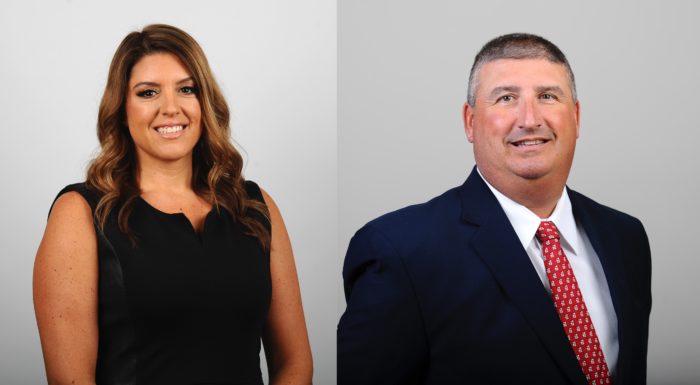
Coaching is thrilling, exciting and dynamic. And now, add frustrating to the mix, because since the onset of the COVID-19 pandemic, interactive sports are on hold everywhere. Athletes and coaches are sequestered at home, and stadiums, pools, basketball arenas, tracks and other athletic venues are shuttered for the foreseeable future.
As coaches, our jobs involve guidance, support, strategy, mentoring, encouragement, and, when necessary, discipline and tough love. Now, our greatest challenges include how best to stay in touch with one another, and keeping our student-athletes motivated, in shape and mentally engaged for the seasons that we know will return, even if we don’t have a start date.
Read: Updated: 101 free higher ed resources during coronavirus pandemic
Focusing on communication and support—not workouts
At Sacred Heart University in Connecticut, we are using all the relevant social media tools available to us, and focusing on consistent, persistent communication.
NCAA safety requirement mandates do not allow workouts because without access to trainers and physicians, we don’t want anyone to be injured. We also can’t solicit specific details on what our athletes are doing to stay in shape or if and how they may be practicing or training.
It’s up to student-athletes to take responsibility during this forced hiatus for their own fitness and health, with only support and encouragement from us.
But we are talking with them via phone, Zoom, email, text and other interactive platforms about academic performance and life, determining how they’re doing and feeling. We’re also sending them fitness and nutritional information and encouraging them to talk with their teammates regularly while remaining fit.
We’re reminding them of the importance of proper stretching and warmups. We don’t want our athletes returning to school out of shape and prone to stress fractures and tears. But it’s up to them to take responsibility during this forced hiatus for their own fitness and health, with only support and encouragement from us. We know what shape they were in when school closed in March, and will see immediately who has been taking their personal fitness seriously come August when, hopefully, they return to campus.
Read: COVID-19 and the future of college sports
Taking participation seriously
We are happy to see our athletes focus on cardio fitness, knowing that when sports resume—for example, spring football camp was canceled, but fall camp begins the first week in August—we’d like them to be in decent shape, especially with only five weeks of preparation preceding the scheduled preseason games and potentially a full schedule to follow.
At SHU, we preach teamwork, attitude, hard work and commitment. We expect our athletes to take their participation seriously, to do their best every day and to want to win—for themselves, their team and their school. These young people are dedicated; they wouldn’t be on our teams otherwise. We stress hard work, discipline and team spirit.
Managing recruitment
We also are methodical and thorough in our recruiting efforts, watching endless videos, speaking with coaches, meeting athletes, and visiting schools for weeks during the preseason. That routine is off-kilter now, as well.
We’re doing the best with what we have. But we have to rely on older information and videos, high school coach assessments, and what we will be able to observe once life, as we know it, resumes.
Read: Colleges determined to re-open, but prepping backup plans
Connecting with coaches, team leaders
Like everyone else, we’re making the best with the tools and opportunities we have, as are our peers at other colleges and universities. We are asking our student team leaders to reach out to their teammates regularly, and for everyone to practice cross discipline—in football, for instance, defensive and offensive players shouldn’t be restricting themselves to just their specific squads.
As head coaches, we connect every day with our own coaches to see how they’re doing, to inventory each of our athletes, and to discuss strategies and tactics. It’s important to find out how everyone is faring, discuss struggles, and share best practices and small victories. We’re all in this together, and there will be an end to this isolation, social distancing and sports moratorium.
We don’t know when students and athletes will return to campus, or be allowed to resume formal, supervised training and competition. But when that day comes, we want to be as prepared as possible. We all miss one another and look forward to returning to action. A “new normal” is on the horizon, and when that day finally arrives, we’ll be ready and raring to go.
Jessica Mannetti has been the head coach of the Sacred Heart University women’s basketball team since 2013. Mark Nofri has had eight seasons as the head coach of the SHU football team. SHU is based in Connecticut.
UB’s coronavirus page offers complete coverage of the impacts on higher ed.





